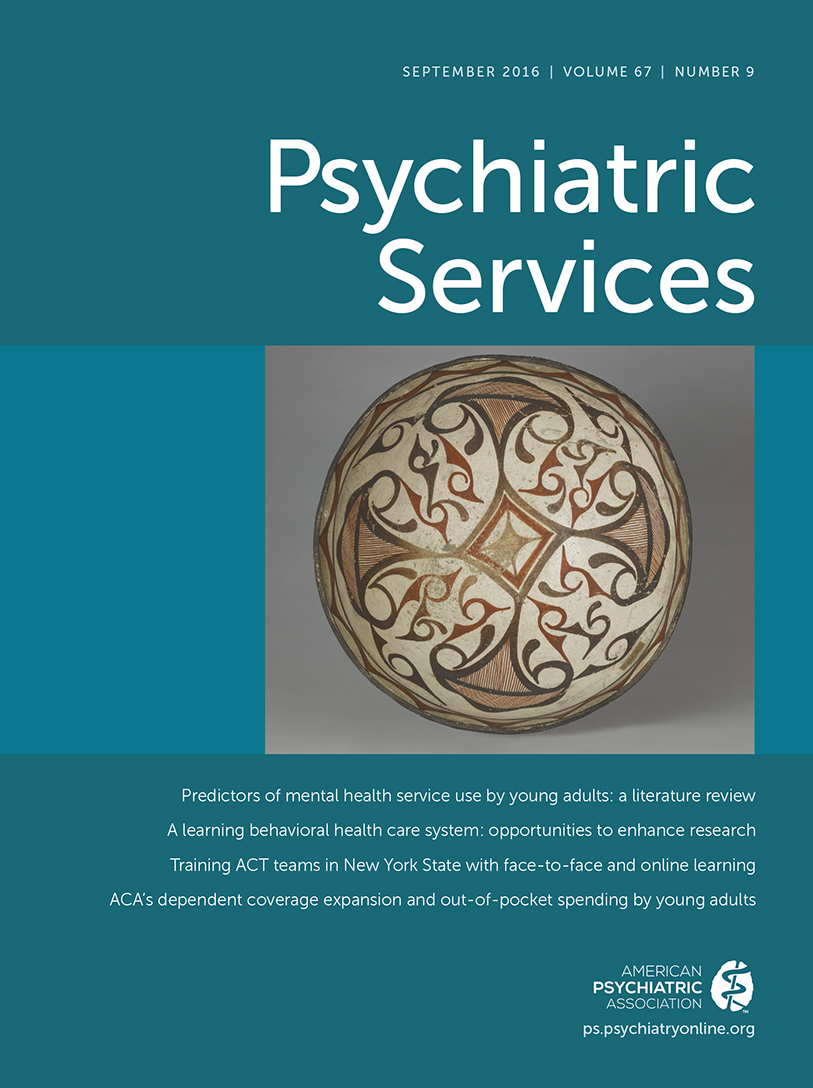Coping With Suicidal Thoughts: A Survey of Personal Experience
Abstract
Objective:
The objective of the study was to describe use of services and self-care strategies by people experiencing suicidal thoughts.
Methods:
Constituents of the Depression and Bipolar Support Alliance (N=611) completed an anonymous online survey regarding experience of suicidal ideation and use of a range of clinical services, community supports, and self-care strategies.
Results:
Mental health providers were the most frequently used and the most favorably rated source of support. Peer supports were less frequently used but also favorably rated. Emergency rooms and telephone crisis clinics were used less frequently and were rated less favorably. The most frequently used self-care strategies included engaging in distracting activities or social activities, using positive affirmations, exercising, and engaging in personal spiritual practices.
Conclusions:
Peer support may be an underutilized resource for coping with suicidal thoughts. Unfavorable ratings for emergency rooms and crisis clinics may indicate a need to develop more collaborative models of emergency care. Frequent use of spiritual practices suggests greater attention to spirituality may be a useful strategy in suicide prevention.




